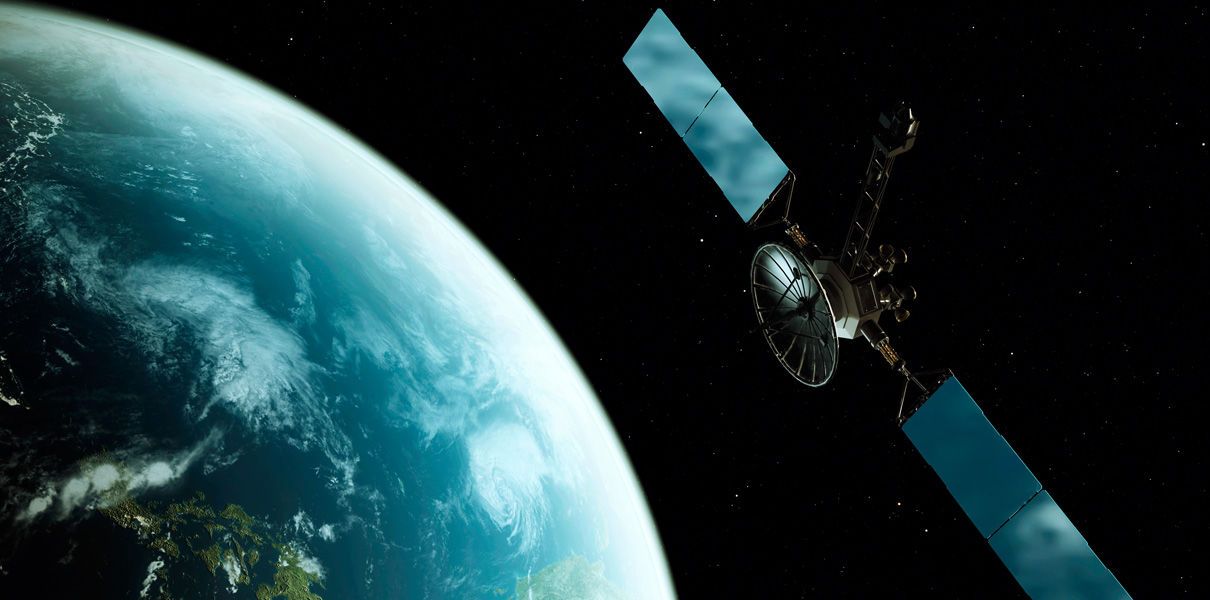Roscosmos may lose the largest order due to the FSB

On Habré several times published articles and news about the OneWeb satellite communication system, the principles of its work and the time of commissioning. In particular, it was reported that Roskosmos is one of the partners in this project, the state corporation received the largest order for launching satellites into Earth orbit.
For the needs of OneWeb, 21 Soyuz launch vehicles have already been contracted, moreover, in the near future, partners could conclude a contract for at least five launches of Proton launch vehicles. Unfortunately, now all plans can be thwarted, because there is a possibility that the network will receive the official status of a threat to Russia's national security. Reports about it "Kommersant".
The fact that the FSB considers the OneWeb project a threat to national security became known on October 24. Then the service representative stated that there are no guarantees “that the satellite communications system is not of intelligence nature and cannot harm the interests of the individual and society of the Russian Federation”. Also, the FSB said that the only way "to counter the threats arising from the deployment of foreign satellite communications systems to provide Internet access <...> is to limit their use in the Russian Federation."
')
Unfortunately, after this statement, the representatives of the FSB stopped commenting on the situation, and Roskosmos also could not comment.
As for the project itself, its founder is former Google manager Greg Wyler. It is planned to create a network of 882 small spacecraft in orbit. The weight of each such satellite is about 150 kg, the cost is $ 500 thousand. Satellites must provide high-speed Internet access and communication services around the world. The capacity of the channel in this case will be about 10 terabits per second. The project managed to attract about $ 1.7 billion in investments from Airbus Group, Bharti, Coca-Cola, Hughes, Virgin Group, Qualcomm and SoftBank.
To implement the project, a joint venture, OneWebEb LLC, was established in 2017, in which 40% is owned by Gonets, and 60% by OneWeb Holding Limited. Then it was reported that "Messenger" plans to sell consumers the resources of the OneWeb network in Russia. “Roscosmos” also acted as an organization in the project, which deals with the launch of satellites into orbit. By 2021, it was planned to launch satellites on the Soyuz family of rockets from such cosmodromes as Baikonur (Kazakhstan), Vostochny (Russia) and Kourou (French Guiana). As mentioned above, a total of 21 "Union" were contracted with a total value of $ 1 billion. The contract was the largest order for Russian launch services. Work on the delivery of satellites into orbit was to begin on February 15, 2019.

Unfortunately, disagreements between the FSB and Roscosmos have been going on for about a year. And the most interesting thing is that OneWeb can work on the territory of Russia without its participation. There is no inter-satellite channel, data transmission is carried out using ground stations. If the project were approved, such stations would appear in the Central, Siberian, Far Eastern districts. If the project is closed, then Russia can be covered by the OneWeb network by stations that are located in Kazakhstan, Italy, Norway and the USA.
Representatives of the FSB fear that in this case there will be a problem with the operation of SORM, since the secret services simply cannot control the network. There is another difficulty - in order for OneWeb to start work, you need permission from the SCRF. Unfortunately, the position of this department is similar to the position of the FSB, so this will not help the project.
The position of law enforcement agencies puts Roscosmos in a very difficult position. The fact is that it is not clear how the launch of satellites for the network, which is recognized as a threat to national security, from the Baikonur and Vostochny cosmodromes will be performed. In addition, the Soyuz-ST missiles, which work for the Kura, differ from the Soyuz-2.1a, they will not be replaced. Plus, with this project there were hopes for another contract - the launch of Protons under the 5 + 8 scheme (five guaranteed launches and 8 optional launches). This was to bring the Khrunichev Center with industrial capacity and from $ 300 to $ 800 million profit.
Since the enterprise has a debt of 100 billion rubles, this would be an invaluable help from the domestic space industry. If you have to break the contract, then you can leave your hopes for profit, plus Russia gets a reputation as a not too reliable partner in the space industry. Well, SpaceX Ilona Mask can easily take the place of Roscosmos.
The decision on OneWeb will be made no earlier than December of this year.
Minute of care from UFO
This material could cause contradictory feelings, so before writing a comment, refresh something important in your memory:How to write a comment and survive
- Do not write abusive comments, do not go to the person.
- Refrain from using obscene language and toxic behavior (even in a veiled form).
- To report comments that violate the rules of the site, use the "Report" button (if available) or a feedback form .
What to do if: minus karma | blocked account
→ Code of authors Habra and habraetiket
→ Full site rules
Source: https://habr.com/ru/post/429808/
All Articles
